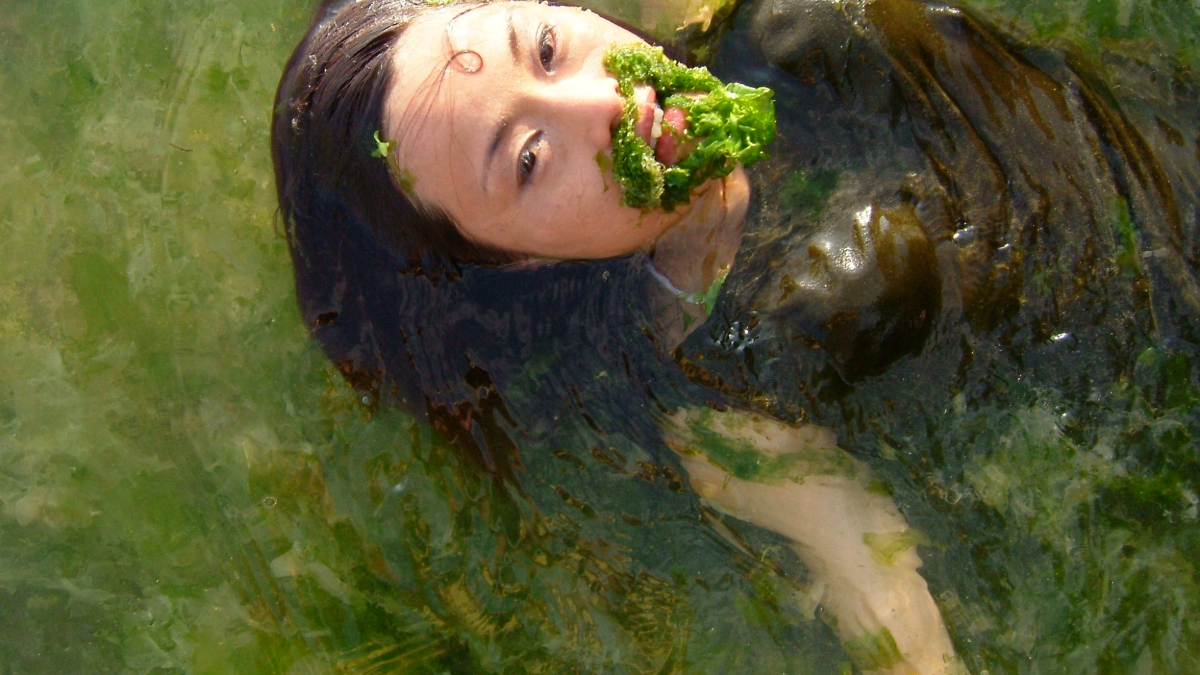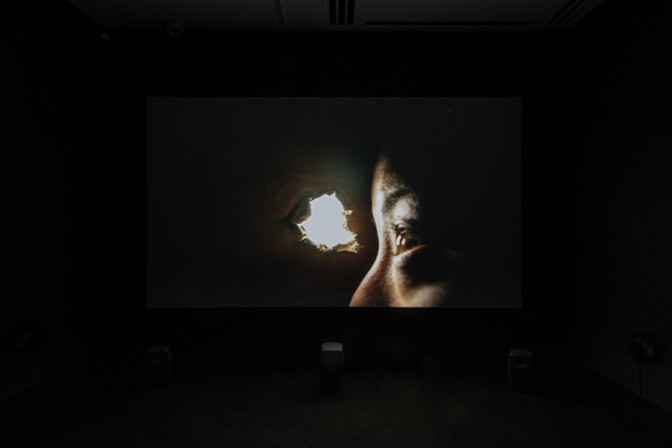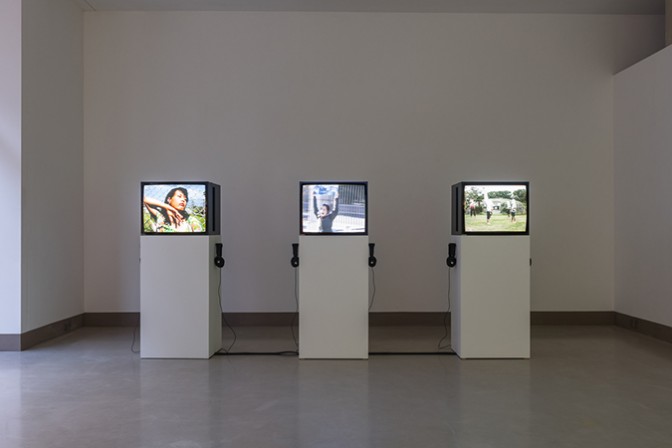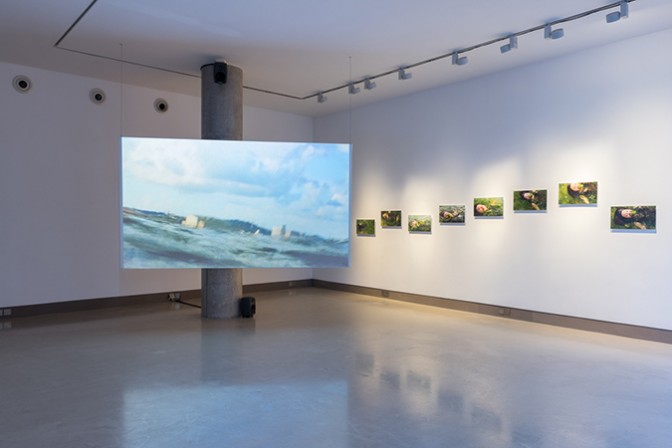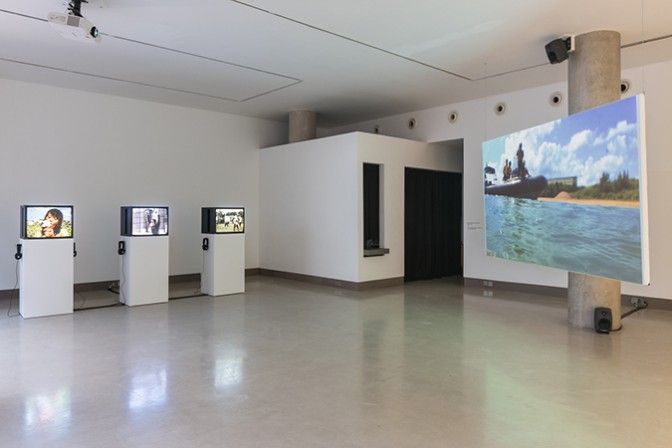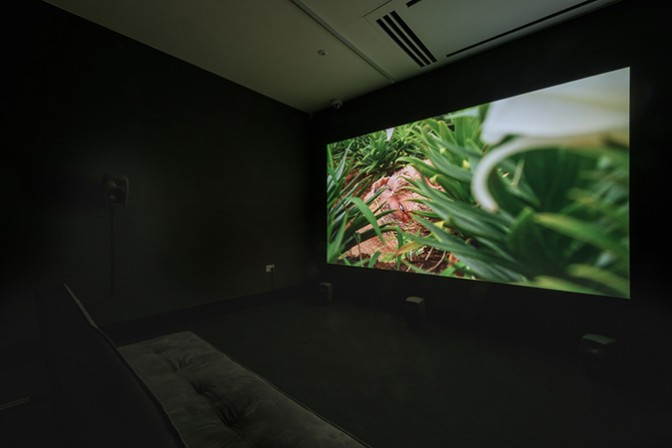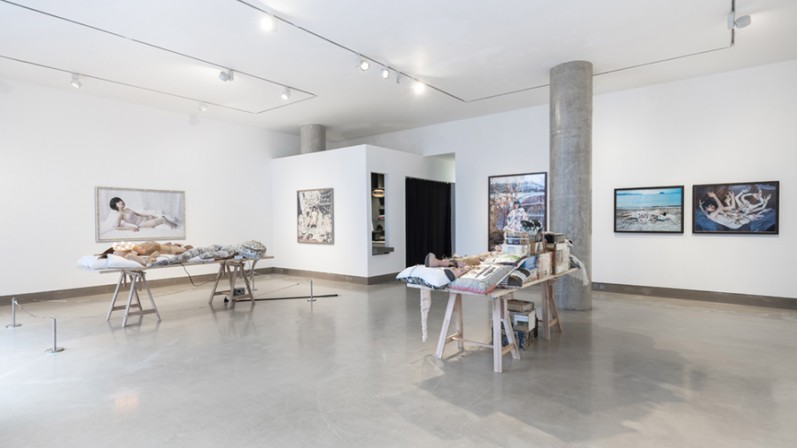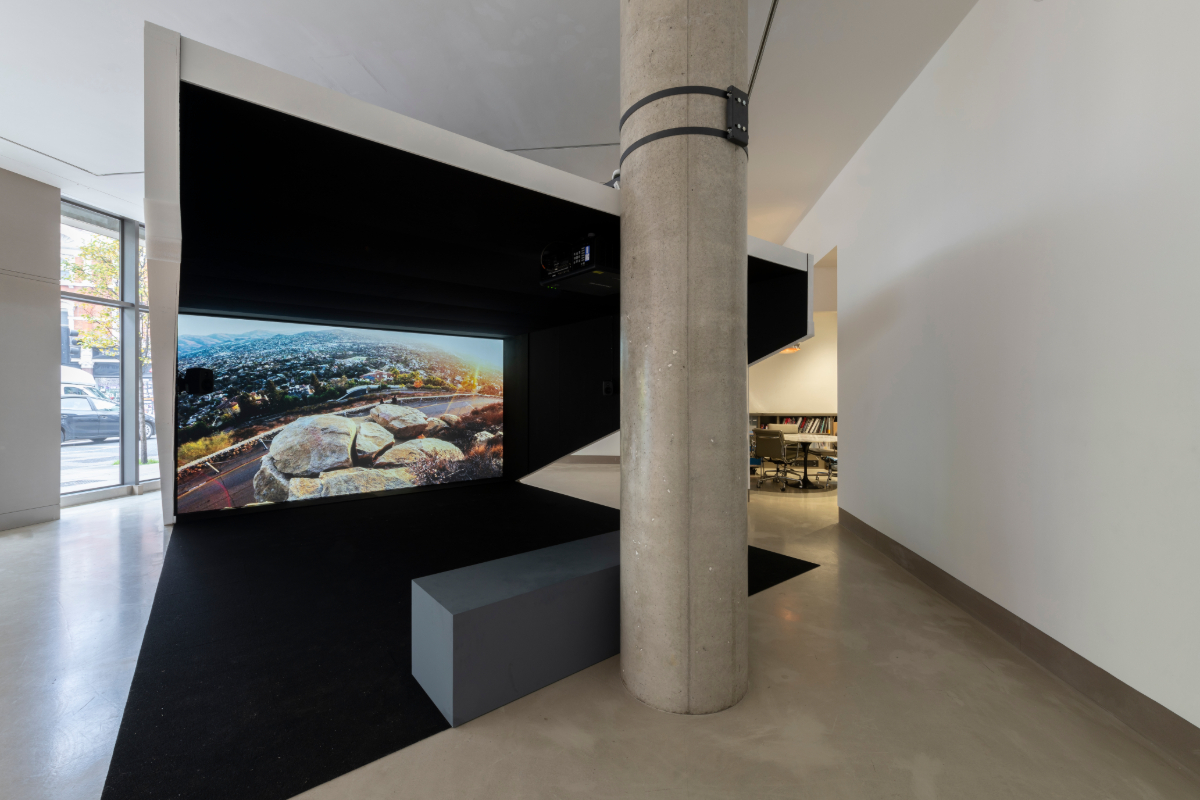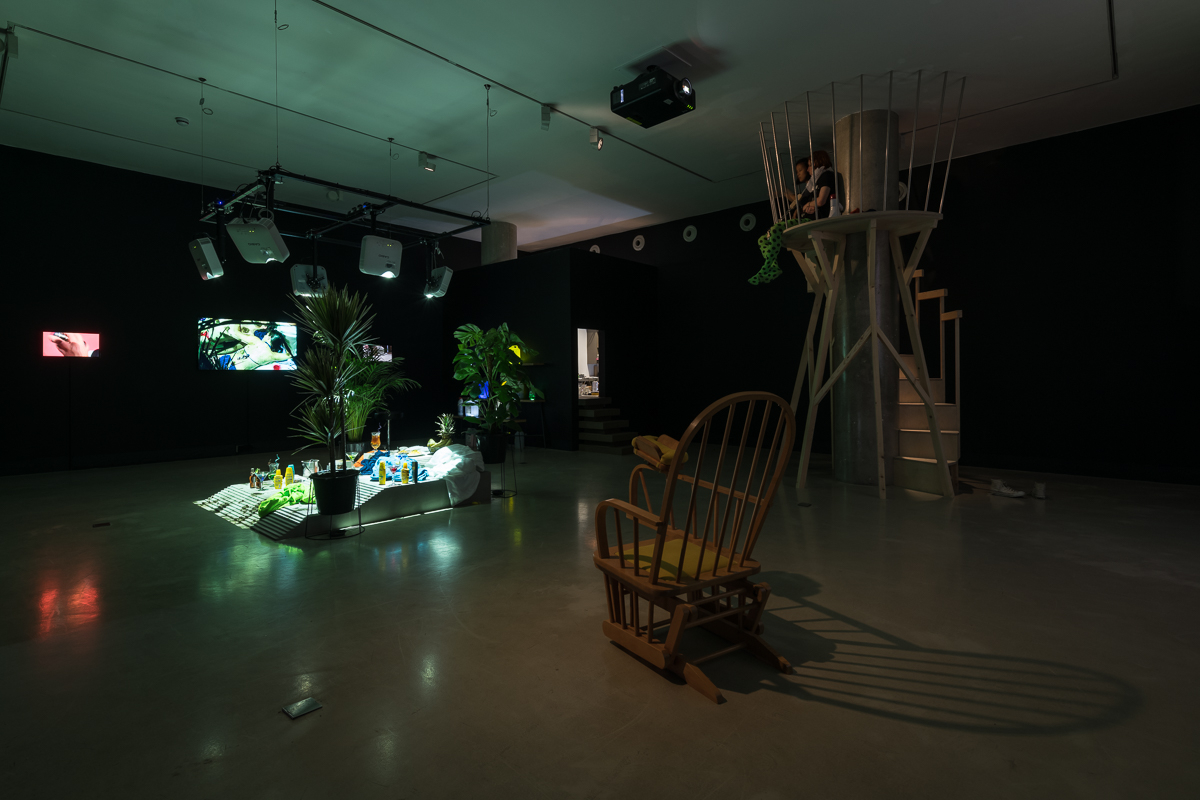The first UK solo exhibition at White Rainbow, Fitzrovia, London by acclaimed performance and video artist Chikako Yamashiro (b.1976, Okinawa, Japan).
Yamashiro, the winner of the Asian Art Award 2017, dramatises the lesser-known aspects of Okinawa’s contemporary reality, while questioning dominant historical accounts of Japanese and American occupation of the islands. The site of fierce battles between the US and Japan at the end of World War Two, Okinawa still has a high concentration of American military bases, occupying around 20 per cent of the land — despite the wishes of many of its indigenous inhabitants. Yamashiro’s practice engages with political and social histories of Okinawa to create provocative and haunting works, drawing on oral accounts and often utilising her own body.
Yamashiro’s early performance work OKINAWA TOURIST (2004) is a sequence of three short performances to camera: Trip to Japan, Graveyard Eisa and I Like Okinawa Sweet. Taking its name from a tourism operator on the island, the work amounts to a parody of a tour of Okinawa. Yamashiro’s deployment of cliché ridicules how such explorations of place can gloss over socio-political truths. Whether devouring ice creams in front of a military base, or staging a typical Okinawan dance in a graveyard, Yamashiro sought to show how the US military presence continues to permeate life on the island.
In Seaweed Woman (2008), Yamashiro mythologises herself as a creature of the sea. In the photographic series, the artist is pictured covered in weeds, floating listlessly in the current, in the sea off Henoko. The area was known for its blue coral and population of dugongs, but was built over to construct the new American military base despite near-unanimous domestic opposition. Yamashiro’s immersive video installation submerges the viewer in this mystical world, presenting the American military relocation from her underwater perspective. The artist’s body comes to symbolise Okinawan subjugation at the hands of Japan and the United States.
More recently Yamashiro has begun to shift from performing in her own works to featuring third party subjects. Her latest film, Mud Man (2016), uses a male protagonist for the first time, and was filmed in South Korea’s Jeju and in Okinawa, with Japanese and Korean languages mixed, and the landscape of the two islands juxtaposed. The work continues Yamashiro’s interest in employing flesh and the earth as metaphors for the political body of Okinawa. Mud Man is presented in White Rainbow’s new purpose-built cinema space.
White Rainbow will publish a new monograph on the artist, to launch in April 2018. The catalogue will include installation photographs alongside a newly commissioned essay by Isabella Maidment and an artist response by Claire Potter.
The exhibition ran from 15 March – 28 April 2018 and the accompanying catalogue on Chikako Yamashiro includes installation photographs alongside a newly commissioned essay by Isabella Maidment and an artist response by Claire Potter.
